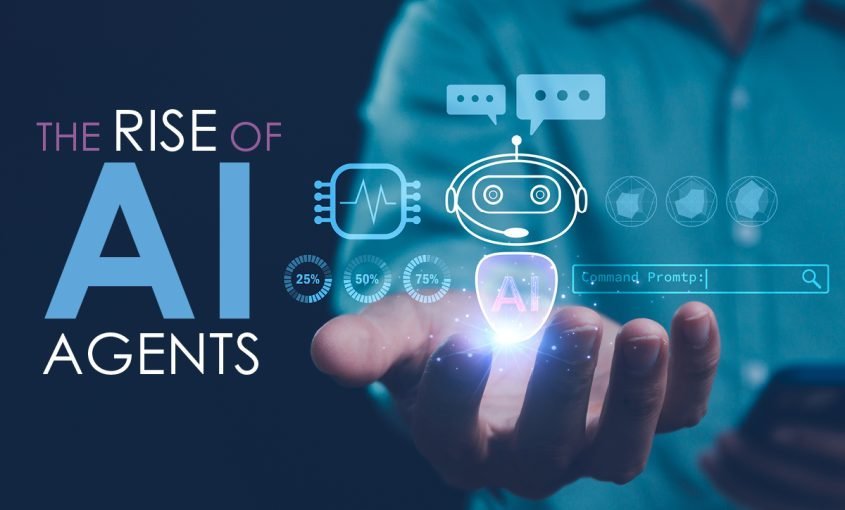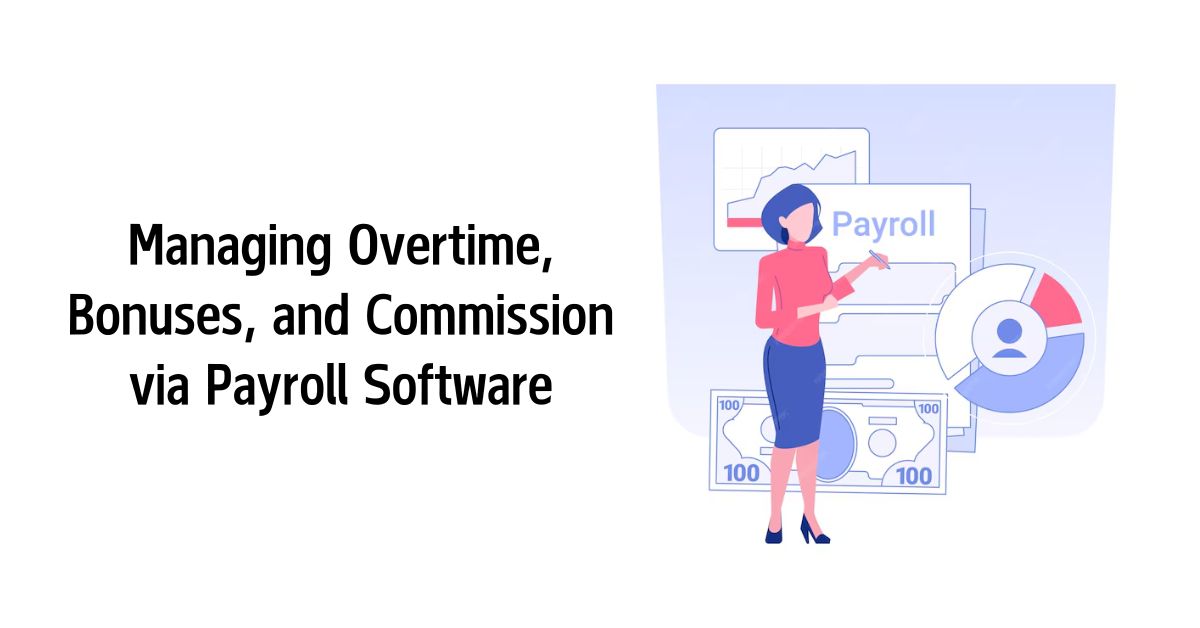AI agents represent a significant stride in the field of artificial intelligence. From handling inquiries in customer service to enabling personalization at scale, these agents have emerged as catalysts for reshaping industries. Built on advanced AI technologies such as machine learning (ML) and natural language processing (NLP), AI agents deliver human-like, personalized interactions, enhancing user experiences. They also learn from data and augment their capabilities over time. Today, as AI continues to take center stage, the impact of artificial intelligence agents is felt strongly across all sectors.
So, what exactly are these AI agents? How are they changing the world around us? Let’s find out.
What are Artificial Intelligence (AI) Agents?
AI agents are computer programs that perceive their environment, process information, and perform tasks to achieve certain goals. They differ considerably from traditional automation systems where a bot simply follows a set of instructions. AI agents are designed to think and act autonomously. They learn from past experiences and adapt to new situations quickly.
AI agents vary in complexity. While some are simple systems that perform a single task, others are sophisticated programs that handle complex processes. Today, AI agents can perform tasks once only humans could perform. Not surprisingly, they are used in verticals as diverse as self-driving vehicles, customer service, and industrial automation.
What are the Different Types of AI Agents?
There are different categories of AI agents. Each category has its own set of capabilities. To choose an agent for a specific scenario, one needs to understand these variations well.
- Simple Reflex Agents: These are the most basic types of AI agents. Simple reflex agents function based on a set of pre-programmed condition-action rules (more like if-else conditions). So, if the condition is met, the action will be performed. These agents neither learn from past interactions nor predict future trends. They are suited only for well-defined environments.
- Model-Based Reflex Agents: Model-based reflex agents learn continuously from their past interactions. They are capable of functioning effectively in environments that aren’t as easily perceptible. When a new situation arises, they decide their actions based on their current perception as well as learnings from previous experiences. This way, they are far more flexible than simple reflex agents.
- Goal-Based Agents: Goal-based agents are designed with a specific goal in mind. When facing a situation, these agents explore all the possible courses of action. They consider the consequences of each action and choose the one that brings them closer to their goal. Goal-based agents are useful in scenarios where multiple outcomes are possible, for example, chess programs or GPS navigation.
- Utility-Based Agents: These are an advanced form of goal-based agents. Utility-based agents evaluate all possible actions in a given situation. They predict the outcomes for each action and assign a score to each outcome depending on its desirability (utility). The outcome with the highest utility score is then chosen. Unlike goal-based agents that simply take the desired objective into account, utility-based agents consider aspects like time, risk, and effort too.
- Learning Agents: These agents continually learn through interactions with their environment and adapt their behavior accordingly. Learning agents are suited for dynamic environments. Examples of learning agents include virtual assistants in mobile devices and spam filters in emails.
How Do AI Agents Benefit Businesses?
Enhanced Efficiency
AI excels at handling repetitive, mundane activities that require time and effort—think data entry, task scheduling, or replying to customer queries. Organizations automate these operations using AI agents. This allows their workforce to dedicate their focus to tasks that demand ingenuity.
Personalized Experiences
Agents in artificial intelligence help businesses deliver personalized user experiences. These agents analyze a customer’s historical behavior, preferences, and other vital information. On the basis of this analysis, they provide tailored responses or recommendations. A high degree of personalization enhances customer satisfaction and encourages repeat business.
High Availability
AI agents are capable of working round the clock. They don’t experience fatigue or need breaks, unlike human representatives. These agents make it possible for businesses to offer support or assistance to customers whenever they need it. This elevates customer satisfaction levels.
Easy Scalability
AI agents can handle rising volumes of inquiries or tasks. They can be easily scaled without the need for a proportionate increase in IT infrastructure. This scalability proves beneficial when an organization is planning to expand their operations or when they have launched a new product/service.
Cost Savings
By adopting AI agents, businesses realize tremendous cost savings. This is because they don’t need to spend money on hiring and training new resources. They just have to get an AI solution implemented by a trusted AI agent development company. Also, AI agents handle customer interactions much more efficiently than their human counterparts. This further brings down the operating costs.
Improved Decision-Making
AI agents collate and analyze large volumes of data. This allows businesses to understand customer preferences and market trends. They are able to make data-driven decisions and gain a competitive edge.
How are AI Agents Impacting Different Business Verticals?
AI agents are incredibly versatile, which is why they are being adopted by almost every sector. Here are some of the major use cases of AI agents:
1) Customer Service
- Virtual Assistants
Virtual assistants provide 24*7 customer support. They are capable of answering queries, guiding users through processes, and automating routine tasks. These assistants provide contextual responses to queries. This makes users feel as if they are talking to a human agent. This enhances their experience and drives conversions.
- Intelligent Routing
Agents in artificial intelligence may not be able to handle complex inquiries. In such situations, they analyze the incoming request, understand the context, and route it to an appropriate agent or department. This enables swift resolution of queries, leading to happier customers.
2) Financial Services
- Fraud Detection
In the banking sector, AI agents help identify fraudulent activities. These agents are trained using data containing millions of financial transactions. As a result, they easily spot anomalous transactions indicative of fraud. With proactive detection of frauds, banks can minimize their losses and save customers a lot of hassle.
- Financial Planning
AI agents also provide tailored financial advisory services. They examine a customer’s income, goals, risk tolerance, and overall financial situation. Based on this analysis, they recommend personalized investment plans. This helps individuals make well-thought-out financial decisions.
3) Retail and Ecommerce
- Demand Forecasting
Artificial intelligence agents sift through volumes of past sales data, customer behavioral patterns, and seasonal fluctuations to predict product demand. By accurately forecasting demand, retail companies are able to maintain the required levels of inventory. Incidences of stockouts or overstocking are reduced.
- Personalized Recommendations
AI agents analyze customer preferences and behavior and provide them with personalized recommendations regarding a product/service. This removes friction from a customer’s buying journey, encouraging purchases, and driving revenue.
4) Manufacturing
- Predictive Maintenance
In factories, sensors gather data from machinery. Artificial intelligence agents analyze this data to predict the health of equipment and anticipate problems in advance. Manufacturers use these insights to schedule preventive maintenance, minimizing downtime.
5) Healthcare
- Medical Diagnosis
AI agents process historical patient data, prescriptions, and electronic health records to identify patterns and anomalies that could indicate an illness. This helps healthcare specialists diagnose diseases early. They also use insights generated from the analysis to create a personalized treatment plan.
- Patient Monitoring and Care
AI agents enable healthcare providers to monitor patient data through wearables and sensors. With real-time tracking of vitals, these agents ensure timely intervention during medical emergencies. This results in superior patient outcomes.
Wrapping Up
We are witnessing an age where AI is playing an indispensable role in every field imaginable. With advances in technology, we expect AI agents to become more advanced and accessible. Businesses that strategically integrate artificial intelligence agents with their operations will reap tangible benefits today and well into the future.




